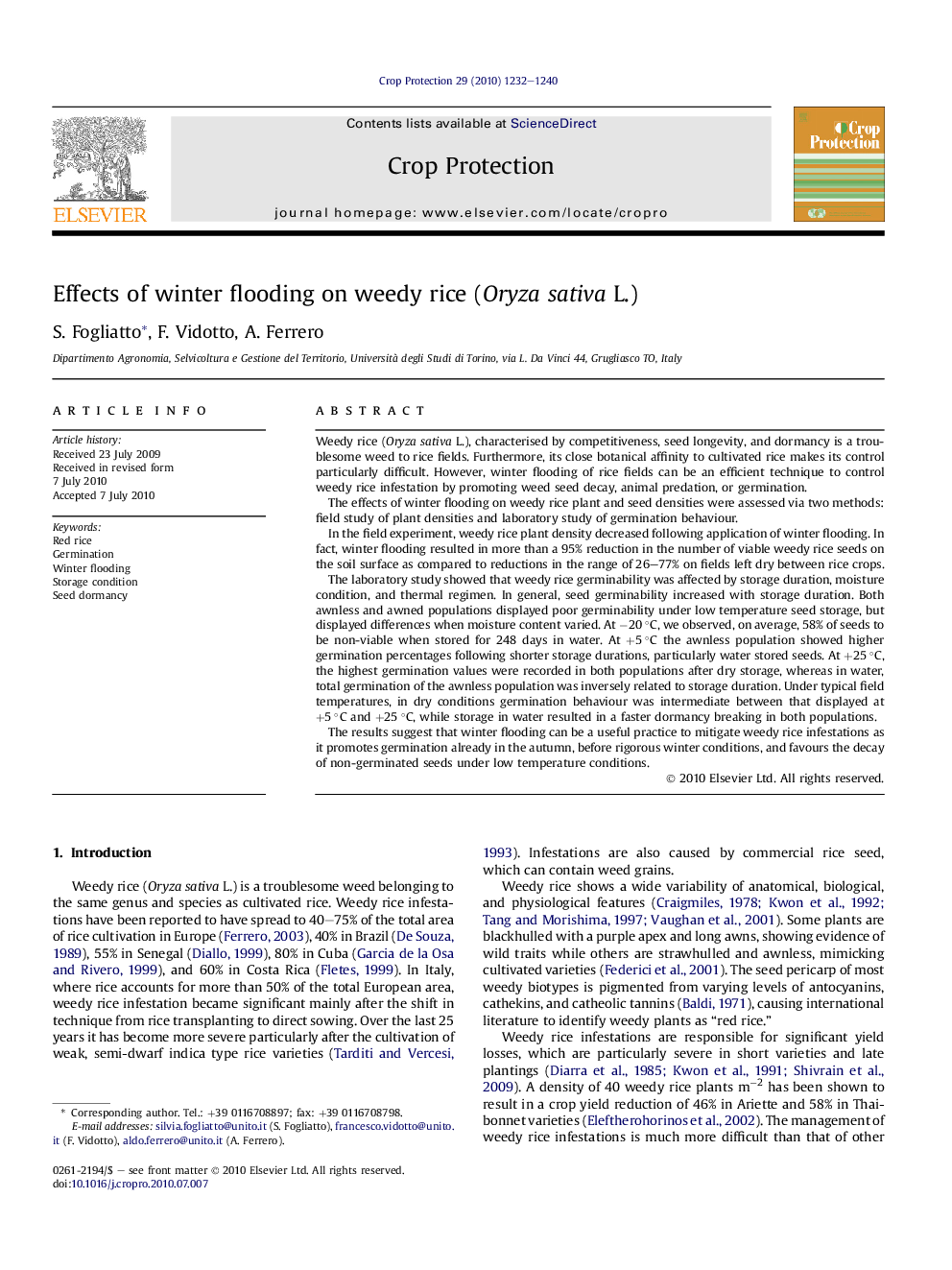| کد مقاله | کد نشریه | سال انتشار | مقاله انگلیسی | نسخه تمام متن |
|---|---|---|---|---|
| 4507262 | 1321347 | 2010 | 9 صفحه PDF | دانلود رایگان |

Weedy rice (Oryza sativa L.), characterised by competitiveness, seed longevity, and dormancy is a troublesome weed to rice fields. Furthermore, its close botanical affinity to cultivated rice makes its control particularly difficult. However, winter flooding of rice fields can be an efficient technique to control weedy rice infestation by promoting weed seed decay, animal predation, or germination.The effects of winter flooding on weedy rice plant and seed densities were assessed via two methods: field study of plant densities and laboratory study of germination behaviour.In the field experiment, weedy rice plant density decreased following application of winter flooding. In fact, winter flooding resulted in more than a 95% reduction in the number of viable weedy rice seeds on the soil surface as compared to reductions in the range of 26–77% on fields left dry between rice crops.The laboratory study showed that weedy rice germinability was affected by storage duration, moisture condition, and thermal regimen. In general, seed germinability increased with storage duration. Both awnless and awned populations displayed poor germinability under low temperature seed storage, but displayed differences when moisture content varied. At −20 °C, we observed, on average, 58% of seeds to be non-viable when stored for 248 days in water. At +5 °C the awnless population showed higher germination percentages following shorter storage durations, particularly water stored seeds. At +25 °C, the highest germination values were recorded in both populations after dry storage, whereas in water, total germination of the awnless population was inversely related to storage duration. Under typical field temperatures, in dry conditions germination behaviour was intermediate between that displayed at +5 °C and +25 °C, while storage in water resulted in a faster dormancy breaking in both populations.The results suggest that winter flooding can be a useful practice to mitigate weedy rice infestations as it promotes germination already in the autumn, before rigorous winter conditions, and favours the decay of non-germinated seeds under low temperature conditions.
Research highlights
► winter flooding decreases weedy rice plant density
► storage duration increases seed germinability.
► moisture condition and thermal regimen affect weedy rice germination.
► winter flooding promotes seed germination favouring the decay of ungerminated seeds.
► awnless and awned populations show variable germination behaviour
Journal: Crop Protection - Volume 29, Issue 11, November 2010, Pages 1232–1240